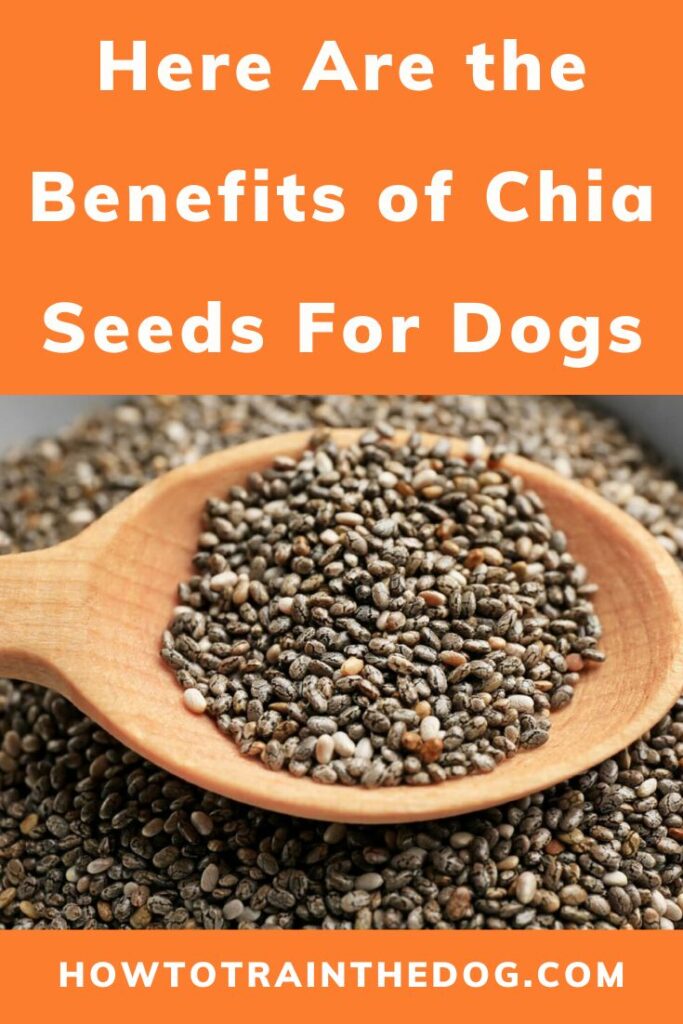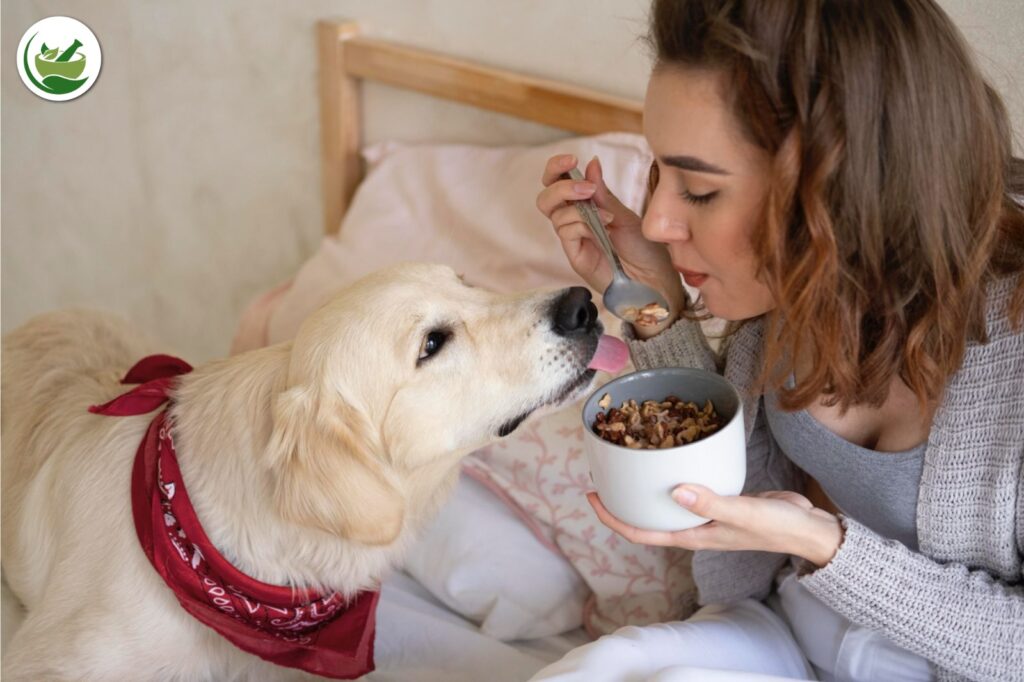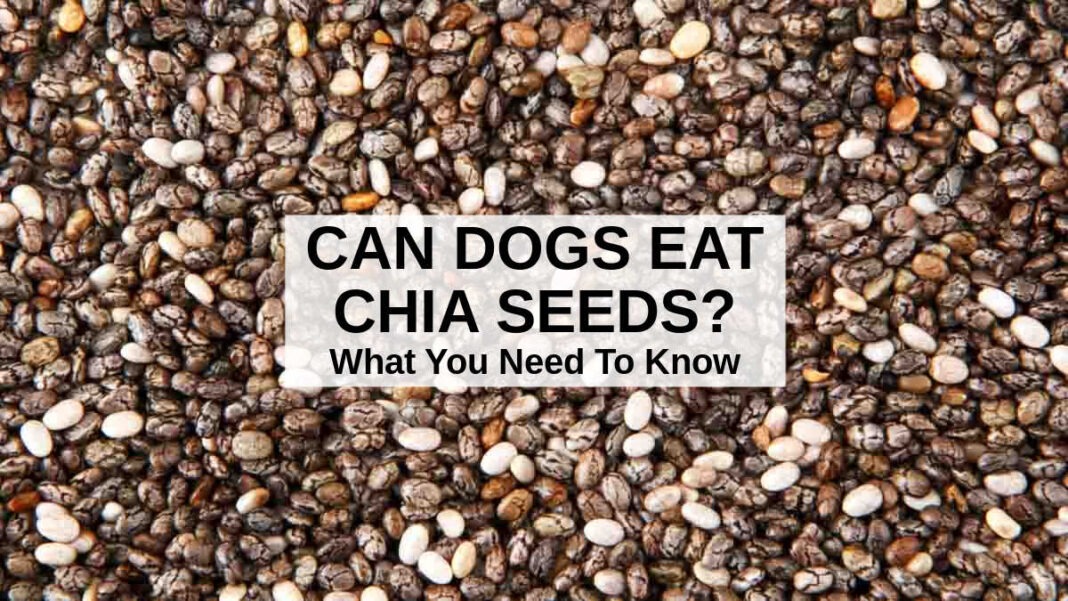Chia seeds have gained popularity in human diets for their numerous health benefits, but can dogs eat chia seeds too? In this comprehensive guide, we’ll delve into the benefits and potential risks associated with feeding chia seeds to your furry friend.
Can Dogs Eat Chia Seeds?
The answer is yes, dogs can eat chia seeds in moderation. Chia seeds are packed with nutrients like omega-3 fatty acids, fiber, and protein, which can contribute to your dog’s overall health when consumed appropriately.

Benefits of Chia Seeds for Dogs
1. Improved Digestive Health
Chia seeds are rich in fiber, promoting healthy digestion in dogs. This can help alleviate gastrointestinal issues such as constipation and diarrhea.
2. Omega-3 Fatty Acids for Skin and Coat Health
Omega-3 fatty acids found in chia seeds are essential for maintaining healthy skin and a shiny coat in dogs. Regular consumption of chia seeds can help reduce itching and inflammation associated with skin allergies.
3. Weight Management
The high fiber content in chia seeds can aid in weight management for overweight dogs by promoting a feeling of fullness and regulating appetite.
4. Joint Health
Chia seeds contain alpha-linolenic acid (ALA), a type of omega-3 fatty acid that possesses anti-inflammatory properties and is beneficial for dogs with arthritis or joint pain.
5. Boosted Immunity
The antioxidants present in chia seeds can strengthen your dog’s immune system, helping them ward off infections and diseases.
6. Dental Health
Chewing on chia seeds can help remove plaque and tartar buildup on your dog’s teeth, promoting better dental hygiene.
7. Energy Boost
Chia seeds are a great source of energy for active dogs, providing a sustainable energy boost to keep them going throughout the day.
8. Regulation of Blood Sugar Levels
The soluble fiber in chia seeds can help regulate blood sugar levels in diabetic dogs, making them a suitable addition to their diet.
9. Anti-Inflammatory Properties
Chia seeds contain essential fatty acids that possess anti-inflammatory properties, beneficial for dogs suffering from inflammatory conditions such as arthritis or allergies.
10. Nutrient-Rich Addition to Diet
Chia seeds are packed with essential nutrients like calcium, magnesium, and phosphorus, which are vital for your dog’s overall health and well-being.
Risks of Feeding Chia Seeds to Dogs
While chia seeds offer numerous health benefits, it’s essential to be aware of potential risks associated with their consumption by dogs.
1. Risk of Gastrointestinal Obstruction
Excessive consumption of chia seeds can lead to gastrointestinal obstruction in dogs, especially if they are not properly hydrated. It’s crucial to monitor your dog’s intake and ensure they have access to plenty of water.
2. Potential Allergic Reactions
Some dogs may be allergic to chia seeds, resulting in symptoms such as itching, swelling, or gastrointestinal upset. Monitor your dog closely for any adverse reactions after introducing chia seeds to their diet.
3. Caloric Intake Considerations
While chia seeds are nutritious, they are also calorie-dense. Carefully consider your dog’s caloric needs and adjust their diet accordingly to prevent weight gain or obesity.

How to Safely Give Chia Seeds to Your Dog
1. Start Slowly
Introduce chia seeds to your dog’s diet gradually, starting with small amounts to assess their tolerance and prevent digestive upset.
2. Proper Hydration
Ensure your dog has access to an adequate amount of water when consuming chia seeds to prevent the risk of gastrointestinal obstruction.
3. Serving Suggestions
You can sprinkle chia seeds over your dog’s food or mix them into homemade treats for a nutritious boost.
4. Monitor for Adverse Reactions
Keep an eye on your dog for any signs of allergic reactions or gastrointestinal distress after consuming chia seeds, and consult your veterinarian if necessary.
Precautions When Feeding Chia Seeds to Dogs
While chia seeds can be a nutritious addition to your dog’s diet, it’s essential to exercise caution and consult with a veterinarian before doing so, especially if your dog has underlying health conditions or is on medication. Avoid feeding chia seeds in excess, as this can lead to digestive issues or nutritional imbalances. Additionally, be mindful of other dietary considerations, such as allergies or sensitivities, and adjust accordingly.
In conclusion, chia seeds can be a beneficial addition to your dog’s diet when fed in moderation. However, it’s essential to be mindful of potential risks and monitor your dog’s response closely. By following the guidelines outlined in this article, you can safely incorporate chia seeds into your dog’s nutrition regimen to promote their overall health and well-being.
Remember, your dog’s health is paramount, so always prioritize their well-being when making dietary decisions.
FAQs about Dogs and Chia Seeds
- Is it safe for dogs to eat chia seeds?
- Yes, in moderation, chia seeds are safe for dogs to consume. However, it’s essential to introduce them gradually and monitor your dog for any adverse reactions.
- How many chia seeds can I give my dog?
- The recommended serving size of chia seeds for dogs depends on their size and weight. It’s best to start with a small amount and adjust accordingly based on your dog’s individual needs.
- Are there any side effects of feeding chia seeds to dogs?
- While chia seeds offer numerous health benefits, overconsumption can lead to digestive issues such as bloating or diarrhea. It’s crucial to feed them in moderation and monitor your dog’s response.
- Can puppies eat chia seeds?
- Puppies can eat chia seeds in small amounts once they are weaned and their digestive systems are more developed. However, it’s advisable to consult with a veterinarian before introducing chia seeds into a puppy’s diet.
- Are there alternative sources of omega-3 for dogs?
- Yes, if your dog cannot tolerate chia seeds or you’re looking for alternative sources of omega-3 fatty acids, consider options such as fish oil or flaxseeds. Always consult with your veterinarian to determine the best choice for your dog’s needs.
